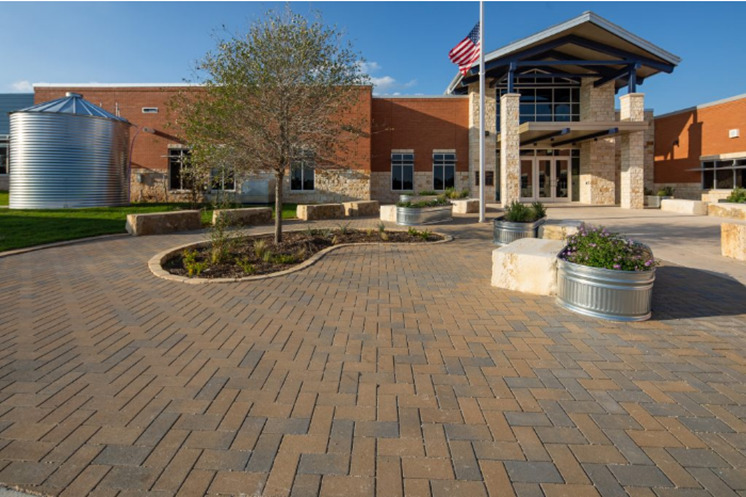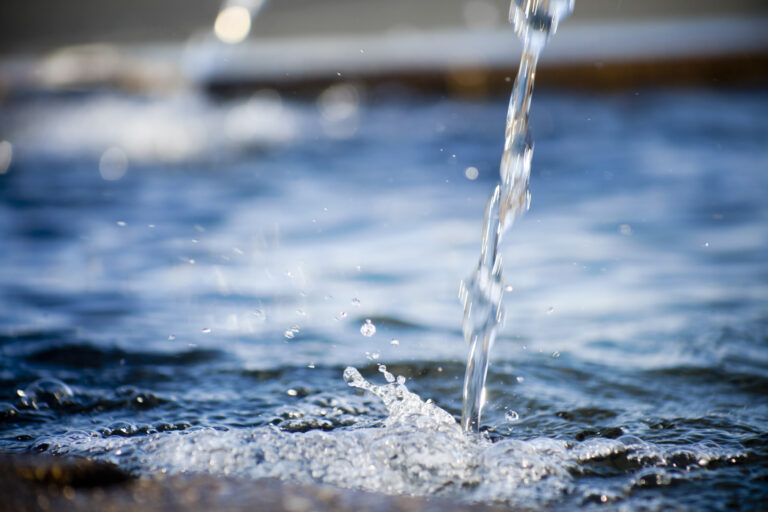
WateReuse Association and the Importance of Training Resources for Onsite Water Systems
Onsite water systems are an increasingly attractive complement to centralized systems in more and more communities, reducing pressure on centralized wastewater systems and creating more resilient communities.
The WateReuse Association is the premier trade association committed exclusively to advancing laws, policies, funding and public acceptance of recycled water across the United States. Supported by its diverse membership—which includes water recycling utilities, businesses dedicated to developing recycled water projects and major industrial and commercial users—WateReuse strives to promote and enhance water recycling in both centralized and onsite systems.
In a typical centralized water reuse system, utilities source, treat and distribute water to local residents and businesses. Wastewater, stormwater, saltwater or graywater is intentionally captured and treated for a designated freshwater purpose such as drinking, industrial processes or surface or groundwater replenishment. Utilities treat recycled water to meet applicable federal and state safety standards and use established training and certifications to support their staff in operating centralized treatment systems of various types.
Centralized treatment systems, however, sometimes struggle to keep up with the demands of population growth and new development. Expansion can be costly and disruptive to a community.
The Advancement of Onsite Water Systems
Onsite water systems (OWS) are an increasingly attractive complement to centralized systems in more and more communities, reducing pressure on centralized wastewater systems and creating more resilient communities. An OWS captures nearby wastewater, stormwater and other sources to treat and use in a single building or in multiple buildings.
Advances in technology have resulted in treatment systems capable of delivering the right quality of water that meets the intended use. Yet, the advancement and implementation of OWS are hindered by a lack of public health-based state or national standards, streamlined permitting processes and regulatory guidance.
WateReuse, alongside its partners, creates tools, resources and opportunities to advance the various types of water recycling, promoting a fit-for-purpose model.
While centralized wastewater treatment facilities remain the main water treatment and recycling method in the U.S., it’s worth noting that onsite water reuse systems have become more prevalent in the built environment over the past couple of decades.

Training Programs for Onsite Water Reuse
In 2019, WateReuse partnered with the National Blue Ribbon Commission for Onsite Water Systems (NBRC) to support more widespread adoption of onsite water reuse systems. The NBRC was established to craft model state policy and develop resources for the safe, practical and sustainable implementation of onsite non-potable water systems. The development of training programs for design professionals and onsite personnel is equally important for ensuring the adoption and success of more onsite reuse programs.
OWS has successfully produced water for non-potable applications such as irrigation, toilet flushing and cooling for many years. Onsite direct potable reuse (DPR) systems, which use advanced treatment to purify water to drinking water standards, are the next step in creating resilient communities. This level of treatment is more complex and requires skilled personnel to ensure the protection of public health and safety, from design to operation. California and Colorado have recently adopted DPR regulations, and states such as Arizona and Florida are engaging in rulemaking processes.
In the absence of standardized regulatory frameworks, many jurisdictions approve these systems through alternative design methods to meet plumbing codes and local ordinances. This approach often results in increased costs and project delays. Additionally, these challenges, combined with an aging workforce, highlight the urgent need for professional qualification standards and certification programs for OWS. These programs should encompass skill-specific knowledge, specialized training and practical experience.
There are several groups advancing training programs for onsite reuse. WateReuse, in partnership with NBRC, Austin Water and others, is developing a training program for operators of onsite non-potable reuse systems. The International Code Council is developing a standard for Onsite DPR (ICC 1600 Series-202x, Professional Qualifications Standard for Onsite Direct Potable Water Reuse Systems) to ensure professionals are properly trained and accredited in accordance with industry standards.

Parting Thoughts
Onsite water reuse systems represent a significant opportunity to transform the way water is managed. These systems can provide water security for businesses, improve water access for underserved communities and serve as a central component of climate-resilient infrastructure. To ensure the ongoing success and growth of these programs, we must safeguard public health and safety along the way.
To access the Code Council’s PMG-related resources, click here. To subscribe to the PMG newsletter, click here.
Resources:
2024 NBRC Action Plan: Accelerating Onsite Water Systems in Communities
2024 NBRC Fact Sheet – National Blue Ribbon Commission for Onsite Non-potable Water Systems





